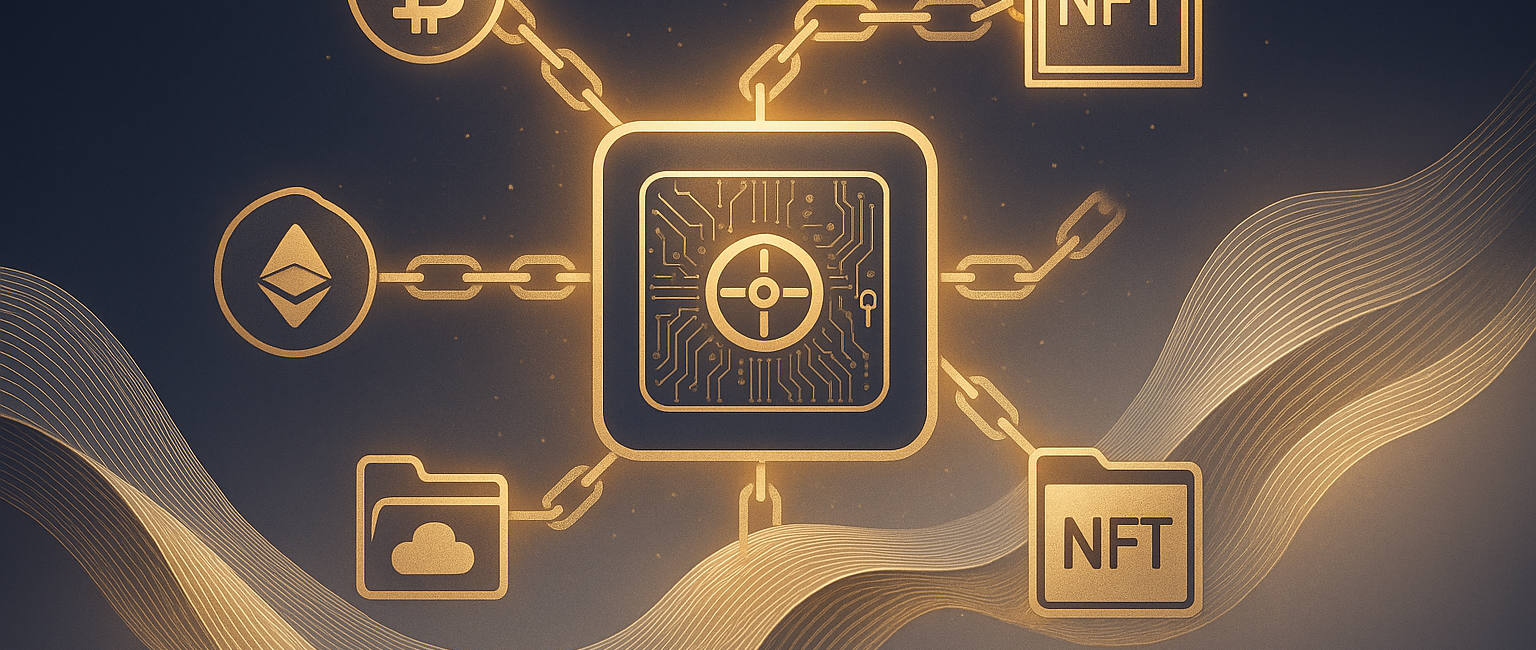
Glenn Devitt has positioned himself at the center of the most transformative wealth transfer in U.S. history. As baby boomers prepare to pass an estimated $19 trillion to younger generations, the former Army Special Operations Intelligence specialist has developed patent-protected blockchain technology that addresses one of the greatest vulnerabilities in modern estate planning: digital asset inheritance.
The digital legacy market reached $26 billion in 2025 and is projected to triple by 2034, driven by blockchain’s ability to ensure security, transparency, and tamper-proof execution of wills. However, while competitors focus on password managers or vaults, Devitt’s Digital Legacy AI provides a unified framework that manages a diverse range of digital assets—cryptocurrency, NFTs, cloud-stored intellectual property, and online businesses—through a single, secure inheritance system.
From Battlefield to Blockchain
Devitt’s breakthrough emerged during his work on the Black Box Project at Stop Soldier Suicide. Families accessing the devices of deceased veterans often uncover cryptocurrency wallets, cloud storage, or sensitive personal histories never intended for relatives. The experience revealed a systemic failure: existing inheritance tools collapse when confronted with digital estates.
“You can’t rescue your way out of this problem,” Devitt noted during his Sentinel Foundation work, emphasizing the need for scalable systems over case-by-case fixes. His perspective reflects 11 years in Army intelligence, specializing in Human Intelligence, Counterintelligence, and Digital Forensics. Deployments to Iraq and Afghanistan, where he earned two Bronze Star Medals, taught him how to eliminate single points of failure and build resilient systems under extreme conditions—principles now embedded in Digital Legacy AI.
After military service, Devitt joined Homeland Security’s H.E.R.O. program and later founded The Sentinel Foundation, conducting more than 45 undercover operations in over 16 countries. Those experiences reinforced the importance of verifiable access under specific conditions, a lesson that directly informs his patented inheritance technology.
Why the Inheritance Crisis Can’t Wait
Current conditions create unprecedented urgency. Nearly 60% of Americans lack estate planning documents, leaving digital assets especially vulnerable. At the same time, millennials—set to inherit $46 trillion by 2048—are more likely to hold wealth in digital form, requiring technical solutions for transfer.
Regulatory and legal developments support the adoption of blockchain. Academic research confirms blockchain’s “immutable and decentralized” design prevents tampering, while smart contracts can automate inheritance execution once legal verification is complete. Governments are beginning to pass legislation defining ownership rights and inheritance rules for digital assets, legitimizing this emerging sector.
Solving the Security Paradox
At the core of Digital Legacy AI is Devitt’s 2024 U.S. patent, which resolves the contradiction between protecting assets during life and enabling access after death. The system integrates:
- Death certificate and Social Security verification
- Blockchain validation and cryptographic key management
- Multi-factor authentication and biometric identification
- Air-gapped storage isolating data until conditions are met
- Smart contracts automating execution once verification occurs
This unified framework ensures heirs gain access only when legally authorized, while eliminating fraud risks and costly probate delays. By combining security with automation, the system moves beyond password vaults to provide estate-level infrastructure.
“I can only grow my services so far, but the bigger markets are the consumer bases where people are consuming a product,” Devitt explained, reflecting on his move from consulting with Delitor Inc. to scalable consumer technology. His focus shifted toward building systems that could reach millions, not just institutions.
Beyond Password Vaults: A Different Kind of Competitor
Patent protection positions Digital Legacy AI as a leader as blockchain inheritance matures. Competitors often offer narrow solutions—such as cryptocurrency custodians or cloud storage access—but few provide legally compliant systems capable of managing complex estates spanning multiple asset classes.
Digital asset markets already exceed $2.5 trillion and continue to diversify. Devitt’s modular architecture anticipates this evolution, supporting integration with decentralized finance, AI-generated intellectual property, and emerging blockchain protocols while maintaining core security principles. This adaptability ensures the platform remains relevant as digital assets grow in scale and complexity.
How Families Become the Growth Engine
Unlike enterprise-focused competitors, Digital Legacy AI grows organically through households. When one subscriber establishes a digital legacy plan, relatives often follow, coordinating access to financial records, cloud storage, and family photos. This multi-generational enrollment creates network effects that accelerate adoption as the “Silver Tsunami” progresses.
“I worked counterintelligence, human intelligence, counterterrorism,” Devitt recalled during his Ed Clay Show interview. “Unlike Silicon Valley founders who operate in optimized environments, I’ve worked in unpredictable, high-stakes situations where improvisation and redundant planning determined outcomes.”
That operational mindset shapes Digital Legacy AI’s household model, where adoption spreads laterally across families and vertically across generations, creating durable customer bases while solving deeply personal challenges.
Law Catches Up With Technology
The sector benefits from growing legal recognition of digital assets in estate planning. Legislatures are clarifying ownership rights and posthumous data access policies, encouraging individuals to include digital assets in wills and trusts. This recognition strengthens consumer confidence while giving blockchain-based systems legitimacy in the eyes of courts and financial institutions.
Smart contracts further streamline inheritance, executing asset transfers automatically once conditions are met. By reducing probate timelines from months or years to near-instant execution, the technology provides not only compliance but also peace of mind for families managing sensitive transitions.
As Devitt observed, “I see a tide of change coming… nine years ago there wasn’t a whole lot of us doing this type of work. Now you can see momentum building.”
Future-Proofing Generational Wealth
Emerging technologies will create new challenges for inheritance. AI-generated intellectual property, virtual reality economies, and post-quantum cryptography will expand digital estates in unpredictable directions. Devitt’s modular system anticipates this future, ensuring that no single breach can compromise an estate while supporting integrations with next-generation protocols.
His military training in threat anticipation and system resilience provides unique preparation for this task. Unlike purely technical founders, Devitt’s background equips him to design systems that account for unknown scenarios—where failure is not an option.
Building Reliability Into the Silver Tsunami
As the largest wealth transfer in history unfolds, the stakes could not be higher. Families need inheritance systems built with battle-tested reliability, not experimental shortcuts. The convergence of demographic pressure, regulatory momentum, and technological readiness creates optimal conditions for adoption, and Devitt’s early patents position Digital Legacy AI to lead.
For Devitt, the mission is about more than capturing market share—it’s about solving a problem no traditional framework can address. By combining military precision with consumer-scale technology, Digital Legacy AI aims to ensure that digital wealth, like physical wealth, can be preserved and passed forward securely.












